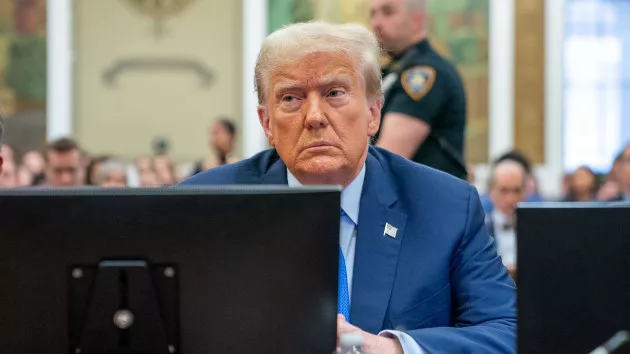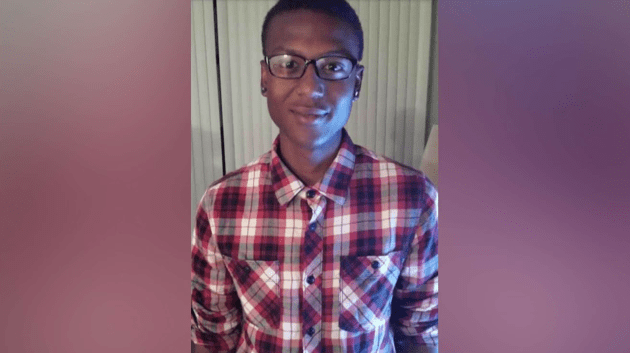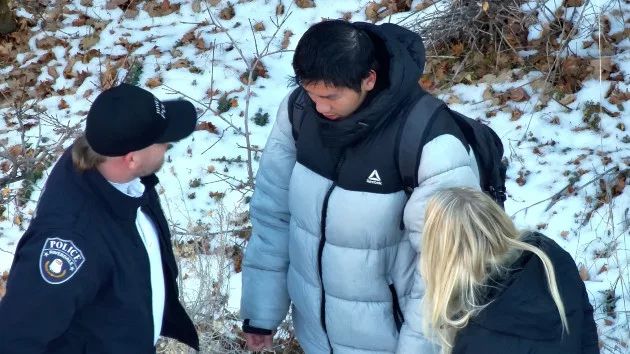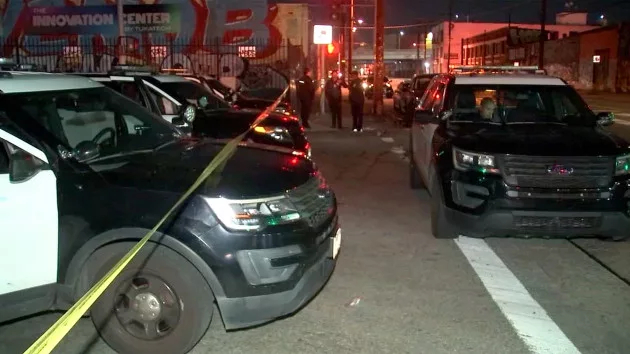
(NEW YORK) — In a tense New York courtroom that saw emotions run high, a defiant Donald Trump testified for roughly four hours Monday in the New York attorney general’s $250 million civil fraud case, which accuses the former president, his sons and his namesake company of improperly inflating assets in order to secure favorable loan terms.
At times Trump punctuated his responses with sudden outbursts targeting New York Attorney General Letitia James, whom he called a “political hack,” and the trial judge overseeing the case, Judge Arthur Engoron, who shouted in exasperation during several exchanges.
Regarding Trump’s statements of financial condition, the documents at the center of the case that the New York AG alleges contained fraudulent valuations, Trump testified that he had a role in crafting the documents but said he mostly tasked their preparation to then-Trump Organization executives Jeffrey McConney and Allen Weisselberg, and that they were vetted by accountants.
The state will call its last witness, Ivanka Trump, on Wednesday, after which the defense is scheduled to present its case over the next four weeks.
Here are five takeaways from Trump’s testimony on Monday:
Trump aired his grievances with the judge and others
“Political hack.” “Election interference.” “Trump-haters.” Those are common refrains on Trump’s social media channels — but never before had they been heard in court.
Until now.
The former president grew animated at times as he laid into the Judge Engoron and state attorneys who brought the case, often motioning with his hands as he aired his grievances.
“Everyone is trying to figure out why you’re doing this. I understand it — it’s called politics,” Trump said at one point.
Later, he went further.
“I think this case is a disgrace,” Trump said. “It’s election interference because you want to keep me in this courthouse all day long.”
Engoron threatened Trump to try to keep him focused
Early in his testimony, as Trump interspersed his answers with political interjections, Judge Engoron grew more agitated.
“You and every other Democratic district attorney, AG, U.S. Attorney were coming after me from 15 different sides. All Democrats, all Trump haters,” Trump said, unprompted, at one point.
Engoron repeatedly and sternly instructed Trump to avoid lengthy “narrative” responses, regularly interrupting Trump’s testimony to strike certain comments and keep the questions moving along.
The judge directed most of his frustration toward Trump attorney Chris Kise, and at one point threatened to excuse Trump from the stand and “draw every negative inference I can.”
“Mr. Kise, can you control your client? This is not a political rally. This is a courtroom,” Engoron said. “I beseech you to control him, if you can. If you can’t, I will.”
When Trump attorney Alina Habba attempted to push back, Engoron shouted, “Sit down already! Sit down.”
After a moment’s pause, Trump weighed in.
“This is a very unfair trial,” he said. “I hope the public is watching.”
Trump acknowledged undervaluing two properties
As the volatility of the morning gave way to a more measured back-and-forth, Trump acknowledged that he overvalued at least two properties in his statements of financial condition, though he broadly represented that the statements underestimated his total net worth.
“Did you ever think that the values were off in your statement of financial condition?” state attorney Kevin Wallace asked about the document at the center of the case.
“Yes, on occasion. Both high and low,” Trump said.
Regarding his penthouse apartment in Manhattan’s Trump Tower, he said, “I thought the apartment was overvalued when I looked at it,” appearing to refer to a $200 million correction applied to his statement after Forbes magazine reported that he falsely stated the apartment was three times its actual size.
Asked about the change in the statement, Trump acknowledged the square footage mistake, which he blamed on a broker, while also claiming that the number was “not far off” from reality when you consider the square footage of Trump Tower’s roof.
“It’s a mistake … [but] there’s a disclaimer clause so you don’t have to get sued by the attorney general of New York,” Trump said.
Trump made a similar admission about the $291 million valuation of his Seven Springs property in New York’s Westchester County.
“I thought it was too high and we lowered it,” Trump said, though he could not provide specifics about the changed valuation.
Trump stood by his statements but said others mostly prepared them
Although Trump said he had a role in crafting his statements of financial condition, he said he largely tasked their preparation to then-Trump Organization executives Jeffrey McConney and Allen Weisselberg.
The pair worked with lawyers and a “very highly paid accounting firm” to compile the statements, Trump testified.
“All I did was authorize for people to give what was necessary so they could do the statement,” he said.
“The bank would check the work that these people did,” Trump said later. “I have people. I pay them a lot of money. They’re accountants. I assume they keep good records.”
Trump didn’t rule out changes following the trial
At the end of the day, as Trump’s testimony was winding down, Wallace asked Trump about what he might have learned as a result of the court case.
“Do you think anything needs to change at the Trump Organization because of what you learned from this lawsuit?” the state attorney asked.
“I don’t think so,” Trump said — but suggested that he would defer to his new accounting firm.
“We will see if anything will come of it,” the former president said.
Copyright © 2023, ABC Audio. All rights reserved.





